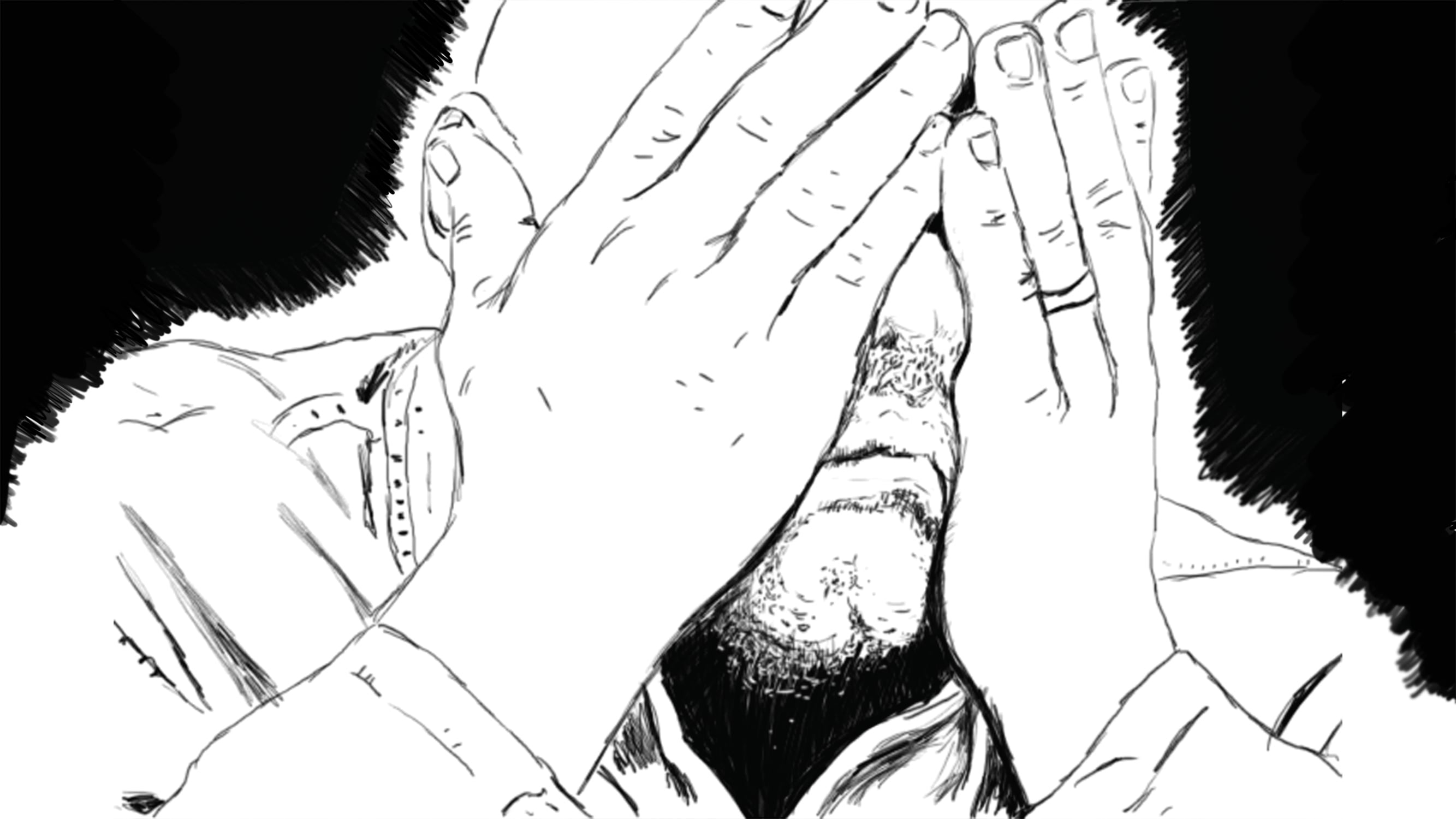A film that raises questions about veterans' mental health care, capital punishment and justice for troubled troops is on the short list for an Oscar on Feb. 28.
The 30-minute documentary "Last Day of Freedom" tells the story of former Marine Manuel Babbitt through the eyes of his brother Bill. Babbitt was executed in California in 1999 after being convicted of beating an elderly woman to death in Sacramento in 1980.
Babbitt — "Manny" to family and friends — had suffered a head injury as a child, and despite having learning disabilities and dropping out of school in seventh grade at age 17, was recruited by the Marine Corps. He went to Vietnam and later developed a host of mental health issues, including schizophrenia, severe post-traumatic stress disorder and substance abuse.
"They was able to discern his physical wounds and was able to patch them up, but they never got around to patching that wound in his head," Bill says in the film.
Through a melange of film footage and animation using more than 30,000 drawings and sketches, filmmakers Dee Hibbert-Jones and Nomi Talisman follow Manny Babbitt's life from childhood to grave, focusing on his struggles but also on the system they believe failed him.
"One of the things we really wanted to uncover is the complexities of the death penalty and of veterans' care," said Hibbert-Jones, an associate professor of art at the University of California-Santa Cruz. "The fact that someone would go to war and serve their country and then be failed by that country is a complete travesty."
The movie is among five vying for the Academy Award for best short documentary. Going into the competition, it already has a bevy of accolades, including the best short film award at the International Documentary Association, as well as the jury and best filmmaker awards from the Full Frame Documentary Film Festival.
Hibbert-Jones said the six-year project began as an effort to understand the impact of gang violence and PTSD on youth.
"But as we listened to Bill's story, it was so powerful … it really speaks to the issues of the judicial system, who goes to war for us, race and politics," she said.
The exact number of combat veterans facing capital punishment in the United States is unknown. An extrapolation from several states released last November estimates that 275 to 300 of the country's 3,057 inmates on death row are veterans.
Manny Babbitt is emblematic of many of these cases, Hibbert-Jones said.
"Sadly, Manny's is not an unusual case," she said.
Babbitt joined the Marine Corps under a program that admitted service members with IQs or physical standards lower than the accepted norm. He was struck in the head and hand by shrapnel at Khe Sanh, Vietnam, and returned to combat a week after he was wounded.
When he got home, he began displaying symptoms of PTSD, including flashbacks and nightmares, according to Bill. He began abusing drugs and alcohol, and turned to crime, robbing gas stations and breaking into homes.

Through a melange of film footage and animation using more than 30,000 drawings and sketches, filmmakers Dee Hibbert-Jones and Nomi Talisman follow Manny Babbitt's life from childhood to grave, focusing on his struggles but also on the system they believe failed him.
Photo Credit: Courtesy of Dee Hibbert-Jones
He was caught, convicted and sentenced to prison but served most of his time in a mental hospital. After he was diagnosed with paranoid schizophrenia, he was let out. He went to live with Bill and his family, and during that time, he broke into the home of Leah Schendel, 78, and beat her to death.
In the film, Bill talks about figuring out Manny participated in the crime and choosing to turn him in.
"I was so grateful for these cops, you know? They were going to make it right, somehow," Bill Babbitt says. "I told my family it was going to be alright."
After Manny was convicted and efforts to appeal the case failed, he was executed on his 50th birthday. In the year before his death, the Marine Corps awarded him his Purple Heart in prison.
Hibbert-Jones, a native of England, and Talisman, an Israeli veteran, that they have lifelong feelings against the death penalty, viewing it as cruel and unusual punishment.
But Hibbert-Jones said in cases involving the mentally ill, the punishment seems even more egregious.
"We have been showing this film at universities, and people say, 'This was years ago. This doesn't happen today.' But that's not true. These issues have not gone away," she said.
Nearly 40 years after Babbitt was discharged, the Defense Department does not know how many troops have been discharged with combat-related mental health disorders, according to the Government Accountability Office.
According to a report published in 2015, the Army, Marine Corps and Navy do not accurately label the reasons for discharges ineligible for disability pay, making it impossible to know how many service members in the past decade have been kicked out for misbehavior that may be related to PTSD or other combat-related disorders.
A Pulitzer Prize-winning investigation in 2013 by The Gazette of Colorado Springs found that the Army continues to discharge troops who have combat-related mental issues for misconduct and poor behavior without examining the connection between the two.
The report also found that Army psychologists face pressure to clear troops for discharge from superiors who want to thin the ranks.
Hibbert-Jones said she would like to win in order to shine a spotlight on the plight of veterans' mental health and capital punishment.
"One of our hopes for the film is it will reach audiences that might not otherwise be aware of these issues," Hibbert-Jones said.
"Last Day of Freedom" is currently available on Netflix.
Patricia Kime covers military and veterans' health care and medicine for Military Times. She can be reached at pkime@militarytimes.com.
Patricia Kime is a senior writer covering military and veterans health care, medicine and personnel issues.





